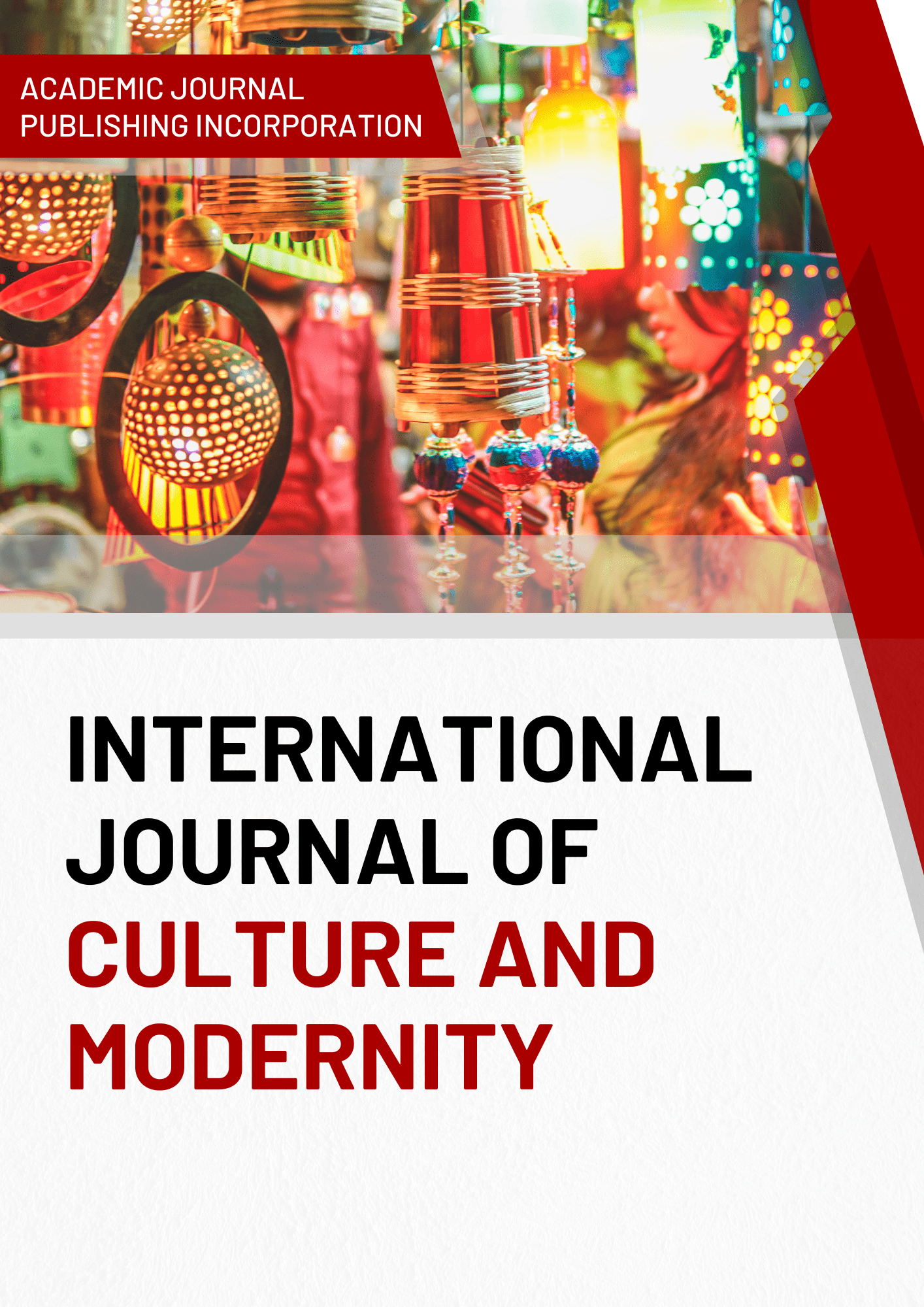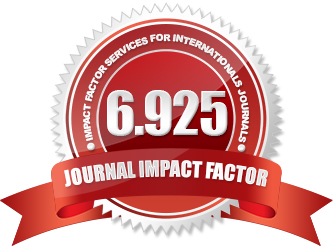Community Policing and Insecurity in Rivers State (2015-2019)
DOI:
https://doi.org/10.51699/ijcm.v7i.50Keywords:
Community Policing, Nigeria Police, Police, PolicingAbstract
The main goal of the Nigeria Police Force is to protect life and property of its citizens but the recent trend of insecurity in Rivers State shows the inability of the Nigeria Police Force in performing these essential functions. These issues can be attributed to inadequate manpower, poor understanding of the environment they are posted to fight insecurity in Rivers State. This issue has created the need for community policing in order to reduce insecurity in Rivers State. This prompted the study to examine the prospect of community policing as a panacea to the problem of insecurity in Rivers State. Therefore, the study developed the following research questions: What is the role of community policing in reducing insecurity in various communities? What is the core principle of community policing in reducing insecurity? What are the challenges of community policing in reducing insecurity in Rivers State? The study adopted the broken windows theory by James Wilson and George Kelling as its framework of analysis. A self-designed structured questionnaire was used to collect data from respondents, while purposive and simple random sampling techniques were employed to select three (3) communities out of two hundred and thirty-four (234) and three (3) local government areas out of twenty-three (23) in Rivers State, with a total sample size of three hundred (300), while two hundred and eighty (280) questionnaires were retrieved. Mean and rank order statistical methods were used to analyse the data. The study revealed that the major role of community policing is to protect life and property, covering and curbing the nooks and cronies in the communities, rapid response to security threats to prevent the breakdown of law and order. The core values of community policing are transparency and openness in their policing function, demonstrate commitment at all times to deliver best quality services. The challenges facing community policing in Rivers State are lack of trust between the police, vigilante groups and the members of the communities, poor public image of the police. The study thus recommends that there is a need for the Nigerian Police to strengthen their cooperation with the members of the various communities in Rivers State. This cooperation will endear them to the people instead of the present mutual suspicion and distrust which alienate people from them. In other words, it will improve community relations with the police, as well as increase information sharing, intelligence, crime detection and prevention.
References
Aalo K. (2015). The Police in Modern Nigeria. Ibadan: University of Ibadan Press.
Abiri, B. (2011). Models of community policing: What worked and what did not, CLEEN Foundation experience. A paper presented at the 3rd biennial national conference on community development in Nigeria, Nov. 22, 2011, Grand hotel, Asaba, Delta state 19-21.
Achumba, I. C., Ighomereho, O. S. &Akpor-Robaro, M. O. M. (2013).Security Challenges in Nigeria and the Implications for Business Activities and Sustainable Development.”Journal of Economics and Sustainable Development, 4(2), pp. 79-99.
Adams, C.F. (1994). Fighting Crime by Building Moral Community.Christian Century Year, 111 (27), pp. 894-896.
Adegbami, A. (2013). Insecurity: A Threat to Human Existence and Economic Development in Nigeria. Public Policy and Administration Research, 3 (6), pp. 8-13.
Akin, I. (2008).The Utility of Close-Circuit Television (CCTV) in Intelligence Gathering by Security Operatives in Nigeria.Proceedings of conference on intelligent security, Lagos.
Alemika, E. O. &Chukwuma, I. C. (2000). Police-Community Violence in Nigeria, Lagos: Centre for Law Enforcement Education and National Human Rights Commission.
Bayley, D. (2012). The State of the Art in Community Policing: An International Perspective. Retrieved from http://www.aic.gov.au/en/publications on 01/01/2012.
Berg, B. L., (2009), Qualitative Research Methods for the Social Sciences (7th Ed). Boston MA: Pearson Education Inc.
Chaskin, R. J. (2009). Building community capacity for children, youth, and families.Children Australia, 34(1), pp. 31-39.
Cheurprakobkit, S. (2008). The importance and incorporation of community policing characteristics in midsize and large police departments: police chiefs’ views. In J. Ruiz & D. Hummer (eds.) Handbook of police administration. Boca Raton: CRC Press. 17-32.
Coquilhat, J. (2008). Community policing: An international literature review. Wellington: New Zealand Police.
Dalgleish, D. &Myhil, A. (2004).Reassuring the public: A review of international policing interventions. London: Home Office.
El-Rufai, N. (2012).The Challenge of National Security and Implication for National Development. Being a Lecture Delivered at the National Conference of the Obafemi Awolowo University Muslim Graduates Association (UNIFEMGA) on 19th May, 2012.
Falan, F. (2016). Insecurity in Nigeria: A meneace to National Development. Premium Times 17th of July. Available at http://www.premuimtimes.com, (accessed on 12th May 2019).
Folashade B. Okeshola Patience E.U. Mudiare (2013). Community Policing in Nigeria : Challenges and Prospects. American International Journal of Contemporary Research. 3 (7), pp.5-9.
Friedmann, R.R. (1996). Community Policing: Comparative Perspectives and Prospects. New York: Harvester Wheatsheaf.
Greene, J.R. (2000). Community Policing in America: Changing the Nature, Structure and Function of the Police. Criminal Justice, 3(2), pp. 299-370.
Hassan, M.B. (2014). Boko Haram insurgency and the spate of insecurity in Nigeria: Manifestation of governance crisis. Journal of Research on Humanities and Social Science, 4, (18), pp. 1-12.
Idowu, J. (2013). Policing in Contemporary Nigeria: Issues and Challenges.African Journal for the Psychological Study of Social Issues, 16(1), pp. 71-77.
Igbo, E.U.M. (2007). Introduction to Criminology .Nsukka: University of Nigeria Ltd.
Igbuzor, O. (2011). Peace and Security Education: A Critical Factor for Sustainable Peace and National Development. International Journal of Peace and Development Studies, 2(1), pp. 1-7.
Igwim, O. (2015). Corruption in Nieria and the state of security. Owerri :EUSTEL Publications.
Ikuteyiyo, L. & Rotimi, K. (2010).Community Partnership in Policing: The Nigerian Experience. Obafemi Awolowo University, Ile-Ife, Nigeria.
Jaja, W. (2005). Nigeria “Rest in pieces”: Background: attitudes towards policing: History of policing in pre-colonial and colonial Nigeria. Retrieved July, 14th, 2017 fromhttp://www.org/reports/2005/nigeria705/4.htm.
Kappeler, V.E. & Gaines, L.K. (2009). Community policing: A contemporary perspective (5th edition). Newark, NJ: Matthew Bender & Company.
Mobolaji, B. &Akim, R. (2014). Informal policing in Lagos: a case study of Oshodi/ Mafoluku, Lagos. Center for African Regional Integration and Border Studies (CARIBS), University of Lagos, 156-173.
Newburn, T. (2004). Handbook of Policing, United Kingdom: Willan Publishing.
Nnam M. U., Agboti, C.I. & Otu, S.M. (2013), Traditional Association: A Catalyst for Community Development, and Crime Prevention and Control in Igbo land, Nigeria. International Journal of Social Sciences and Humanities Reviews 4(3), pp. 95-101.
Nwolise, O.B.C. (2004). The Nigeria Police in International Peace-Keeping under the United Nations. Ibadan: Spectrum Books.
Odinkalu, C. A. (2005). When did the police become your friend? Changing roles of civil society in promoting safety and security in Nigeria” crime and policing in Nigeria: challenges and options in AlemikaE.E.O and ChukwumaI.C. Eds. Lagos: CLEEN Foundation, 1(2), pp. 35- 48.
Ogunleye, G.O., Adewale, O.S., Alese, B.K. &Ogunde, A.O. (2011).A Computer-Based Security Framework for Crime Prevention in Nigeria.A Paper presented at the 10th international conference of the Nigeria computer society held from July 25th -29th.
Ogunleye, G.O., Adewale, O.S., Alese, B.K. & Ogunde, A.O. (2011).A Computer-Based Security Framework for Crime Prevention in Nigeria.A Paper presented at the 10th international conference of the Nigeria computer society held from July 25th -29th.
Okafor, N. (2007). Law Enforcement in Postcolonial Africa: Interfacing Indigenous and English Policing in Nigeria. International Police Executive Symposium (IPES) Working Paper No 7, May.
Okeshola, F. B. & Mudiare, P. E. (2013).Community policing in Nigeria. Challenges and prospects. American International Journal of Contemporary Research. 3 (7), pp. 134-138.
Olaolu, K. (2015). The Police in a Federal State: The Nigerian Experience. Ibadan: College Press Limited.
Olujinmi, A. (2005). “Keynote Address: Crime and Policing in Nigeria”. In E.O. Alemika & I.C. Chukwuma (eds.) Crime and policing in Nigeria: Challenges & options. Lagos, Nigeria: CLEEN Foundation.
Omoyibo, K. U. & Akpomera, E. (2012). Insecurity Mantra: The Paradox of Nigerian Growth and Development. European Scientific Journal, 8(15), pp. 132-142.
Punch News paper (2019). The Rate of Insecurity in Rivers State. Available:http://wwwpunchnewspaper.com/2019/ 40/14/the issues of insecurity in rivers state/ (Accessed 21 May 2019).
Sherman, L. & Eck, J. (2004) Police for crime prevention, in Sherman, L., Farrington, D., Welsh, B. and Layton MacKenzie, D. (eds) Evidence-based crime prevention. London: Routledge. New York.
Tella, C.M. (2015). Insecurity in Northern Nigeria: Causes, Consequences and Resolutions. International Journal of Peace and Conflict Studies, 2(4), pp. 23-36.
The Tide (2019). Insecurity Issues in Rivers State. Available: http://wwwthetidenewspaper.com/2019/5/18/the problems facing Nigerian security insecurity in rivers state/ (Accessed 22nd May 2019).
Thisday Newspaper (2019). The Issues of Violence and Insecurity in Nigeria.Available:http://www.thisdaynewspaper.com/2019/4/30/the cultist ac in rivers state/ (Accessed 25th May 2019).
Tönnies, F. (1955).Community and association. London: Routledge & Kegan Paul.
Tope A.O. (2016). The Impact of Emotional Intelligence on Community policing in Democratic Nigeria Agenda Setting for National Development.Global Community Policing Problems and Challenges, CRC press, 25-40.
Vanguard Newspaper (2018).Cultist-Clash in Rivers State. Available :http://www.vangurdnewspaper.com/2018/8/23/the cultist ac in rivers state/ (Accessed 22nd May 2019).
Downloads
Published
How to Cite
Issue
Section
License
Copyright (c) 2021 Nwogo Okechukwu Okechukwu, Offor Onyinye Gift, Asiegbu Victor Iheanyichukwu

This work is licensed under a Creative Commons Attribution 4.0 International License.






